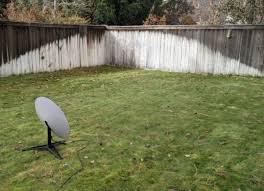
Breaking News
 Sunday Full Broadcast: CJNG Drug Cartel Launches Hundreds Of Terror Attacks Across Mexico...
Sunday Full Broadcast: CJNG Drug Cartel Launches Hundreds Of Terror Attacks Across Mexico...
 We'll provide updates to this post as needed; some of our friends are still there we're cont
We'll provide updates to this post as needed; some of our friends are still there we're cont
 UPDATE: 21-Year-Old Mar-a-Lago Intruder Killed at Mar-a-Lago IDENTIFIED - Photo Released
UPDATE: 21-Year-Old Mar-a-Lago Intruder Killed at Mar-a-Lago IDENTIFIED - Photo Released
 BREAKING UPDATE From Puerto Vallarta, Mexico As War Breaks Out
BREAKING UPDATE From Puerto Vallarta, Mexico As War Breaks Out
Top Tech News
 New Spray-on Powder Instantly Seals Life-Threatening Wounds in Battle or During Disasters
New Spray-on Powder Instantly Seals Life-Threatening Wounds in Battle or During Disasters
 AI-enhanced stethoscope excels at listening to our hearts
AI-enhanced stethoscope excels at listening to our hearts
 Flame-treated sunscreen keeps the zinc but cuts the smeary white look
Flame-treated sunscreen keeps the zinc but cuts the smeary white look
 Display hub adds three more screens powered through single USB port
Display hub adds three more screens powered through single USB port
 We Finally Know How Fast The Tesla Semi Will Charge: Very, Very Fast
We Finally Know How Fast The Tesla Semi Will Charge: Very, Very Fast
 Drone-launching underwater drone hitches a ride on ship and sub hulls
Drone-launching underwater drone hitches a ride on ship and sub hulls
 Humanoid Robots Get "Brains" As Dual-Use Fears Mount
Humanoid Robots Get "Brains" As Dual-Use Fears Mount
 SpaceX Authorized to Increase High Speed Internet Download Speeds 5X Through 2026
SpaceX Authorized to Increase High Speed Internet Download Speeds 5X Through 2026
 Space AI is the Key to the Technological Singularity
Space AI is the Key to the Technological Singularity
 Velocitor X-1 eVTOL could be beating the traffic in just a year
Velocitor X-1 eVTOL could be beating the traffic in just a year
SpaceX Starlink Broadband Beta Testers "Amazed" By Its Speed, As New Photos Emerge

One beta tester shared his experience on Reddit after he brought his Starlink equipment to a remote forest in Idaho. There, he said he was able to achieve 120Mbps download speeds and access the internet at lightning fast speed.
He wrote that the service "works beautifully." He continued: "I did a real-time video call and some tests. My power supply is max 300w, and the drain for the whole system while active was around 116w."
"Starlink pulled that off in a place where [the user] couldn't get any cellular service from Google Fi, which relies on the T-Mobile and US Cellular networks. There is no cell here with any carrier," he said, according to ARS Technica.
The user put the satellite dish on the ground in an open part of forest and did a speed test to confirm his 120Mbps download speeds. He said the results got worse as he moved into more heavily forested locations.



